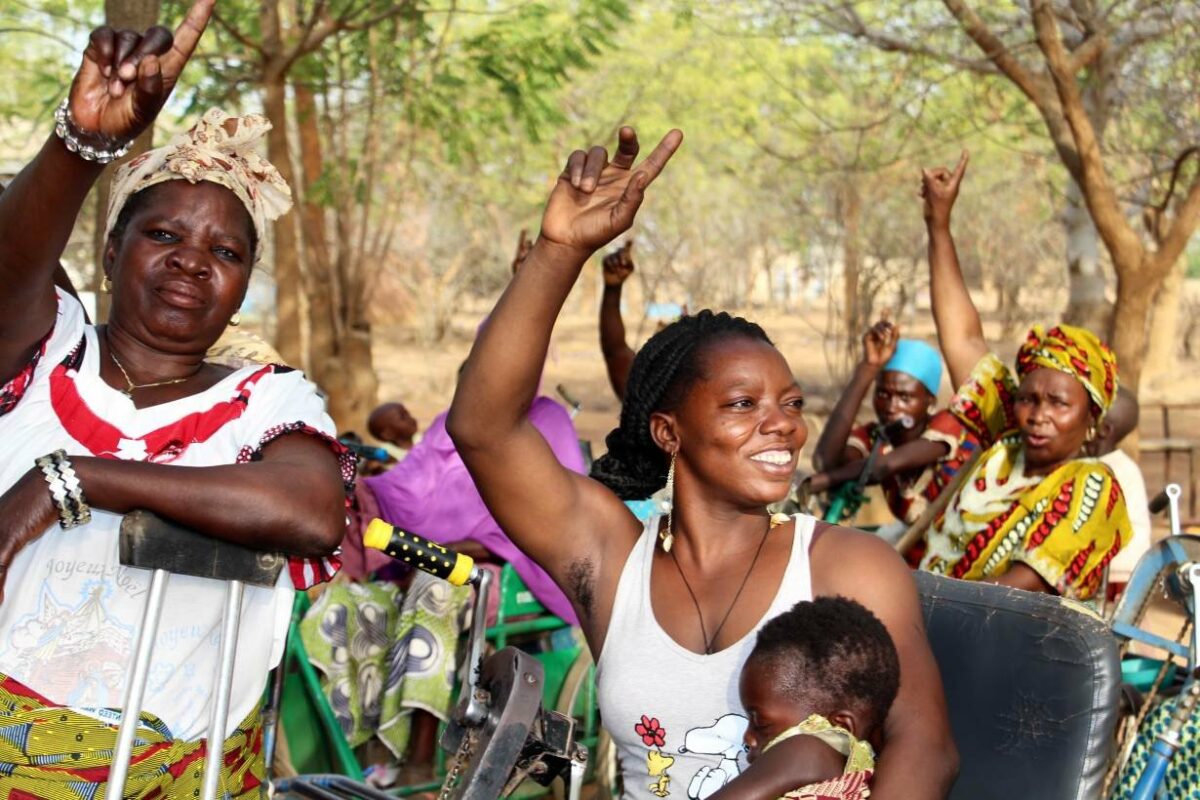By Tomas Mandl, Senior Program Manager For Latin America and the Caribbean, CIPE

When a young Peruvian economist walked through the doors of the newly formed Center for International Private Enterprise (CIPE) forty years ago, the world looked a lot different than today. The Cold War was still raging and much of Latin America was ruled by military regimes. The idea that democratic institutions go hand-in-hand with a market economy and vice versa, concepts that are central to CIPE’s foundational principles, was a new notion to many. While these principles and practices have come a long way since CIPE’s creation in 1983 and the spread of its programs to 138 countries, Latin America remains a challenging region for democracy supporters of all stripes. And as CIPE, a senior technical partner of the Consortium for Elections and Political Process Strengthening, observes its 40th anniversary, now is a time of much reflection on lessons learned as the organization also forges ahead.
The young Peruvian economist was none other than Hernando de Soto, who would become an internationally renowned intellectual, author of influential books such as The Other Path and The Mystery of Capital. Notably, de Soto was CIPE’s first-ever program partner under a grant by the National Endowment for Democracy (NED) to help incorporate 300,000 small entrepreneurs from Lima into the formal economy.
Then as today, where many governments see informal businesses as activities to be constrained, CIPE and its partners see budding entrepreneurs and potential advocates for democratic principles and institutions. CIPE’s programs are built upon the premise that the private sector (usually via business associations, chambers of commerce, and other networks) can play a crucial role in building up and sustaining democracies. The private sector drives job creation, investment, and innovation, but also supports key elements of democratic governance like rule of law, anti-corruption, and clean elections. From Colombia and Costa Rica to Paraguay and Peru, CIPE programs over the past four decades have demonstrated that a thriving private sector can become a driving force for lifting lives, strengthening communities, and building more inclusive economies.
The ideas of another CIPE partner, Paraguay’s Martin Burt, creator of the Poverty Stoplight, illuminate an equally relevant aspect of CIPE’s work. Burt developed the concept of “capitalism for the poor,” which considers private entrepreneurship as a key tool in bringing about policy-level and societal changes needed to eliminate poverty. When people are empowered to master their own lives by starting businesses and advocating for reforms, democracy becomes the foundation for a better life.

Indeed, the failure of many governments to improve the lives of citizens has raised many questions about how democracy delivers. CIPE’s response has been to work with networks of private enterprises, including disenfranchised entrepreneurs, to help them articulate their needs and shape policies that generate greater opportunities for all. For example, CIPE and Argentina’s Fundación Libertad are working in six countries to train small and medium-sized enterprises (SMEs) to develop stakeholder networks, raise awareness about the importance of reducing regulatory obstacles to SMEs’ growth, and in turn, spur more inclusive democratic processes. Meanwhile in Ecuador, the Quito Chamber of Commerce has incorporated CIPE pillars, including the process for developing a “national business agenda,” to find common policy solutions among private sector, academia, government, and labor in an environment of deep political polarization.
CIPE’s partner-driven approach is essential and a key to successful program models worldwide, because in most countries, SMEs are the economic engine and a huge knowledge base. As with de Soto and Burt, programs may be adapted to reflect the specific sectors or institutions involved.
The partners play an active role in identifying barriers to business and advocating for regulatory changes that address specific day-to-day realities of entrepreneurs and their communities. For example, in Colombia’s post-conflict areas, the Observatory for Private Investment (OPI), established by CIPE and local partner Jaime Arteaga & Associates, has been at the vanguard of efforts to both monitor investment patterns and build democratic institutions. OPI’s data and fora have allowed entrepreneurs and firms of all sizes to engage (many for the first time) with policymakers about their unique experiences, challenges, and opportunities.
CIPE’s experience also demonstrates that democracies built upon gender-based inequalities cannot stand. As in many places around the world, women in Latin America have gained political rights, but still lag behind men in many areas: income, formal business formation, access to finance, and corporate leadership positions. CIPE is working with partners worldwide to advance women’s economic empowerment. CIPE’s Corali Women’s Business Resource Center in Guatemala (funded by the U.S. Department of State’s Bureau of Democracy, Human Rights, and Labor) is one of several locations worldwide that provides training, mentoring, and childcare options to help women start and grow their own businesses.

As new challenges arise, CIPE and partners will continue efforts to draw on four decades of collective experience to generate public-private dialogue and identify business-led solutions. To this end, CIPE’s Anti-Corruption and Governance Center has launched innovative programs to promote transparency and accountability, such as a HackCorruption events in Colombia and other locations with partner Accountability Lab. Winning ideas have ranged from digital procurement dashboards to whistleblowing platforms and open data portals. CIPE co-leads the Global Alliance for Trade Facilitation, which is helping numerous Latin American countries boost and streamline intra-regional trade via an Authorised Economic Operator (AEO) Regional Recognition Arrangement (RRA). In 2022, CIPE created a new Center for Accountable Investment to help countries attract constructive capital investments and safeguard against so-called corrosive capital investments that weaken democratic institutions. Meanwhile, CIPE just announced the creation of a new Center for Digital Economy and Governance, as e-commerce opportunities grow, and new technologies emerge. And in collaboration with CEPPS core partners, the National Democratic Institute (NDI) and the International Republican Institute (IRI), CIPE developed a Future of Democracy website and multi-media collaboration to encourage people to think about the topic in new ways. Taken together, these initiatives reflect CIPE’s continued commitment to raising the voice of business in policymaking and proving the many ways that democracy delivers.


